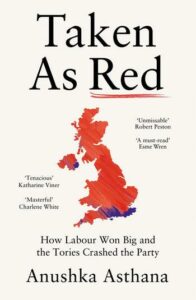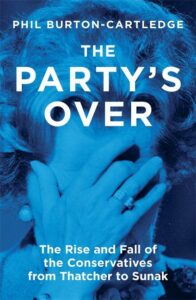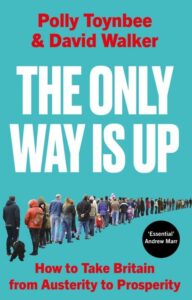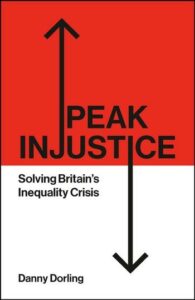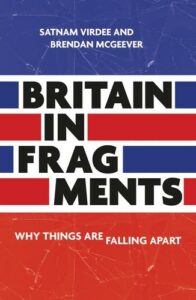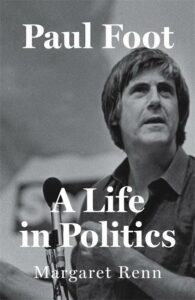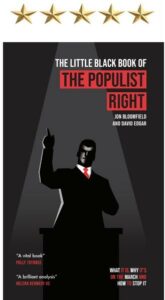As Labour’s party conference meets, Mark Perryman provides a reading guide to the hopes, and the fears, of what this Keir Starmer government might achieve
For an instant account of Labour’s campaign, look no further than Taken as Red: How Labour Won Big and the Tories Crashed the Party by Anushka Asthana. Readers will have differing views what many of the campaign revelations tell us about Keir Starmer’s Labour, all will find them spellbindingly interesting!
Of course Labour has spent considerably longer in opposition than in office. For those of a certain vintage the numbers are scarred in the memory: Wilson/Callaghan 5 years, Thatcher/Major 18 years, Blair/Brown 13 years, Cameron (with a little help from Clegg)/ May/Johnson/Truss/Sunak another 14 years. Add it all up – that’s 32 years of Tories vs 18 years of Labour. So it seems appropriate to start with Mark Garnett, Gavin Hyman and Richard Johnson’s Keeping the Red Flag Flying: The Labour Party in Opposition since 1922.
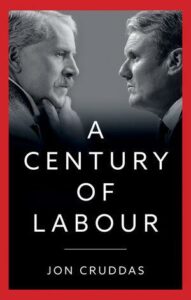
A Century of Labour by Jon Cruddas, marks the centenary first Labour government of 1924 with an unashamedly partisan account of the party’s record when in power ever since. A shorter time span, but one more familiar to readers of a certain age, is admirably covered by Patrick Diamond’s The British Labour Party in Opposition 1979-2019: Forward March Halted.

In his new book The Searchers: Five Rebels, Their Dream of a Different Britain, and Their Many Enemies Andy Beckett writes of the past, present and future of Labour’s hard left, making a compelling case for what the party of the ‘broad church’ loses without it, from Benn to Corbyn, forced into involuntary absence. A Labour left that, whatever its faults, (this would be the subject of another book), mixes heady idealism, dogged determination and more fresh thinking than it is often given credit for.
Diane Abbott’s memoir A Woman Like Me is an absolute testament to what Labour loses when this narrowing goes unchallenged, recognised across Labour’s spectrum with the breadth of resistance to Keir Starmer’s ill-conceived plan to ban her from standing in the 2024 General Election. And a book with a rich vein of humour, intended or otherwise. Read Diane’s account of her romance with Jeremy Corbyn and just try to stop yourself laughing out loud!
Futures of Socialism: ‘Modernisation’, the Labour Party, and the British Left, 1973-1997 by Colm Murphy expertly tracks the evolving, and sometimes competing, debates as Labour shifted over the course of two and a bit decades from The Alternative Economic Strategy to the abandonment of Clause Four. Karl Pike in his Getting over New Labour: The Party after Blair and Brown, makes a compelling case for not conducting any assessment of Starmer in terms of compare and contrast with 1997-2020. Instead, he urges we understand that while identifying continuities has its place, accounting for the differences is far more interesting, and important.
My stand-out title for making sense of Starmer in power is from Eunice Goes. Her short book Social Democracy is a handy ready-reckoner of how social democrats, epitomised today by Keir Starmer and Rachel Reeves, seek to square the circle of the radical and democratic, or as Labour’s General Election campaign oxymoronically sloganised ‘Change and Stability’.
And the Tories? Phil Burton-Cartledge’s . The Party’s Over: The Rise and Fall of the Conservatives from Thatcher to Sunak was originally published as Falling Down in 2021. Back then, Boris Johnson was still basking in the vain glory of his 2019 landslide and the comprehensive breaching of Labour’s Red Wall. Few doubted Labour was in deep trouble and the Tories set for umpteen more years in power, certainly not the paid commentariat. Phil did doubt, uniquely revealing the underlying trends that would lead not so much as Labour winning in 2024 as the Tories losing.
Polly Toynbee’s latest book, with co-author David Walker, The Only Way is Up: How to Take Britain from Austerity to Prosperity should be essential reading for every Labour MP, adviser and campaigner, not only with an eye on winning again in 2029 but how to do so and deserve it.
In 2023 Danny Dorling’s Shattered Nation: Inequality and the Geography of a Failing State provided a map of poverty’s impact across all points of Britain, north, south, east and west. A kind of Road to Wigan Pier, with the statistics. Then earlier this year his Seven Children: Inequality and Britain’s Next Generation added a biographical dimension of children’s lives and aspirations from across the income bracket.
And now, Peak Injustice: Solving Britain’s Inequality Crisis, a primer of richly ambitious yet entirely practical policy ideas that is essential reading for anyone who wants Labour in power to fulfil its promise of ‘change.’
Mary O’Hara’s new book Austerity Bites 10 Years On : A Journey to the Sharp End of Cuts in the UK. Read it and then ponder what Labour could achieve in the next decade to reverse this unwanted legacy.
For an account of when governments fail in such a project, read The Department: How a Violent Government Bureaucracy Killed Hundreds and Hid the Evidence. Disabled activists recently raised the money to deliver a free copy of this extraordinary book of investigative journalism by John Pring, himself disabled, to every one of our 650 MPs. Let’s hope they not only read it but act upon its lessons.
Brad Evans puts the present, poverty-stricken plight of the mining valleys of South Wales in the context of this uniquely heroic past. How Black Was My Valley: Poverty and Abandonment in a Post-Industrial Heartland is a read both to anger and inspire – the first worse than useless without the latter.
Satnam Virdee and Brendan McGeever’s Britain in Fragments: Why Things are Falling Apart is my first choice as a book to read, inform and inspire. They put this entire sorry tale of inequality, injustice and austerity into one account every bit as much about problem-solving as problem-accounting – no easy task.
How the Railways will Fix the Future: Rediscovering the Essential Brilliance of the Iron Road by railway engineer and RMT member Gareth Dennis sets out in expert detail the huge potential of an entirely publicly owned train system run for the benefit of serving communities and a key resistance to the rapidly emerging climate emergency.
The Rentier State: Manchester and the Making of the Neoliberal Metropolis is Isaac Rose’s powerfully argued examination of how a direct, statist, challenge to the rental industry would be just about the popular policy Labour could enact and help restore the party’s increasingly fragile support in what were previously Labour’s metropolitan urban heartlands.
Grace Blakely outlines in Vulture Capitalism: Corporate Crimes, Backdoor Bailouts and the Death of Freedom almost every part of this country’s economy, society even, is entirely owned by global corporations. And as Grace patiently explains the failure to challenge this salient fact is absolutely rooted in Labour’s inability to recognise how it is neoliberalism that has afforded this takeover.

For an insight into why Gaza won’t simply disappear as a cause read Israeli journalist Gideon Levy’s courageously dissenting reportage on both the horrors of 7 October and the punishment of Gaza via mass devastation and killing in The Killing of Gaza: Reports on a Catastrophe. And for the historical background Israeli historian IIan Pappe’s Ten Myths about Israel is an absolutely essential read.
The not much lamented Workers Revolutionary Party (WRP) in the 1980s had a certain political presence via its daily paper Newsline and its most prominent member, Vanessa Redgrave. Behind all this was one Gerry Healy, and when his multiple sins were finally revealed the WRP split in time-honoured fashion in multiple direction. The Party is Always Right: The Untold Story of Gerry Healy and British Trotskyism by Aidan Beatty tells this entire sorry tale in highly readable and fascinating detail.
As for the theorising of the far left much of it I can do without. But in amongst the spurious rewrites of 1917, the 2024 remix, there is a depth of thinking us lightweight reformists would do well not to dismiss. AntiCapitalist Resistance (yes really) is the stillborn descendant, of arguably the most creative of the 1968 crop, the International Marxist Group (IMG), best known member another brilliant writer and orator, Tariq Ali. The Resistance (no, don’t laugh) have recently published Palestine and Marxism by Joseph Daher which, refreshingly free of the 1917-era jargon, provides a theoretical framework to understand Gaza a much wider audience than the revolutionary left would do well to engage with, if not entirely subscribe to.
Paul Foot was supremely gifted writer and a dogged investigative journalist, exposing injustice where he could find it, his journalism every bit at home in Private Eye, the Daily Mirror, the London Review of Books as Socialist Worker, a revolutionary who counted Shelley and Orwell every bit an influence on his politics as Lenin and Trotsky, and most of all one of the finest and funniest orators for the cause one was ever likely to hear. All this and more is retold in Margaret Renn’s biography Paul Foot: A Life in Politics. And if readers find it difficult to believe that an unashamed democratic socialist of a reformist disposition like me could find so much to admire in a revolutionary socialist (and a Trot for goodness sake!) read Paul’s final book The Vote: How It Was Won and How it Was Undermined to find out why.

Few on Labour’s outside Left have anything like the reach of the hero of the TV and radio studio and taker-down of all things establishment, RMT General Secretary Mick Lynch. Gregor Gall’s Mick Lynch: The Making of a Working Class Hero meticulously analyses Mick’s irresistible rise as the polar opposite to Keir Starmer’s rise over roughly the same period.
In 1979 of the path-breaking Beyond the Fragments: Feminism and the Making of Socialism co-authored by Sheila Rowbotham, Lynne Seagal and Hilary Wainwright was published. Sheila revisits the immediate political aftermath of the book’s publication in her latest memoir Reasons to Rebel: My Memories of the 1980s.

Edited by Joshua Virasami, A World Without Racism: Building Antiracist Futures helps us to understand the very welcome fact that in the 2000s, antiracism has become every bit an irresistible force of change as feminism did in the 1980s, most recently via the huge global response to the Black Lives Matter movement.
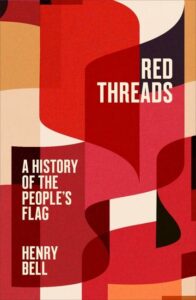
Perhaps what this great movement of our imaginations needs most of all, instead of a thought-out plan of action, is a banner to rally behind. And fortunately rescued from ‘modernisation’ and dusted down all ready to go we have one. Red Threads: A History of the People’s Flag is a book like no other, Henry Bell’s absolutely fascinating history of the Red Flag.
Toby Manning’s magisterial Mixing Pop and Politics: A Marxist History of Popular Music, over 500 plus pages provides a soundtrack ranging from doo-wop, soul and psychedelia to glam, punk rap and grunge had me crying out for more, more, more!
Rick Blackman’s Babylon’s Burning: Music, Subcultures and Anti-Fascism 1958-2020 helpfully provides a richly researched history of the clash of cultures, rebel music and protest politics, from the aftermath of the 1958 Notting Hill race riots via Rock against Racism to the rising tide of anti-immigration racism of the current decade.
And top of my reading hit parade on the subject of music, culture and resistance is Joe Mulhall’s Rebel Sounds: Music as Resistance. A counterfactual account of an anti-fascism, and anti a whole lot more too of what is rotten in our society, rooted in music. Global in reach too, including Irish rebel songs, underground gigs in the old Eastern Europe behind the Berlin Wall, the music that helped topple Apartheid South Africa and the soulful soundtrack to America’s civil rights movement.
I conclude this comprehensive Labour Party Conference reading guide with my five star choice for the book to read as Keir Starmer’s Labour Government approaches its first 100 days in office on 17th October. The Little Black Book of the Populist Right: What it is, why it’s on the march and how to stop it by Jon Bloomfield and David Edgar. The August race riots have been clamped down upon, but neither the very real causes of the problems behind them nor the violent response aimed at Muslims, immigrants, asylum-seekers, have gone away. This short but brilliant book is both a road map to the nightmarish future where these first 100 days could end up and a helpful guide to why they don’t necessarily have to end up with such a violently sorry ending by 2029. Read and resist.
Note: No links in this review are to Amazon, if you can avoid purchasing these books from a site that both dodges taxes and exploits its workers please do so.
Mark Perryman’s previous books include The Blair Agenda and The Corbyn Effect he is currently working on a new book The Starmer Symptom to be published by Pluto in autumn 2025.

